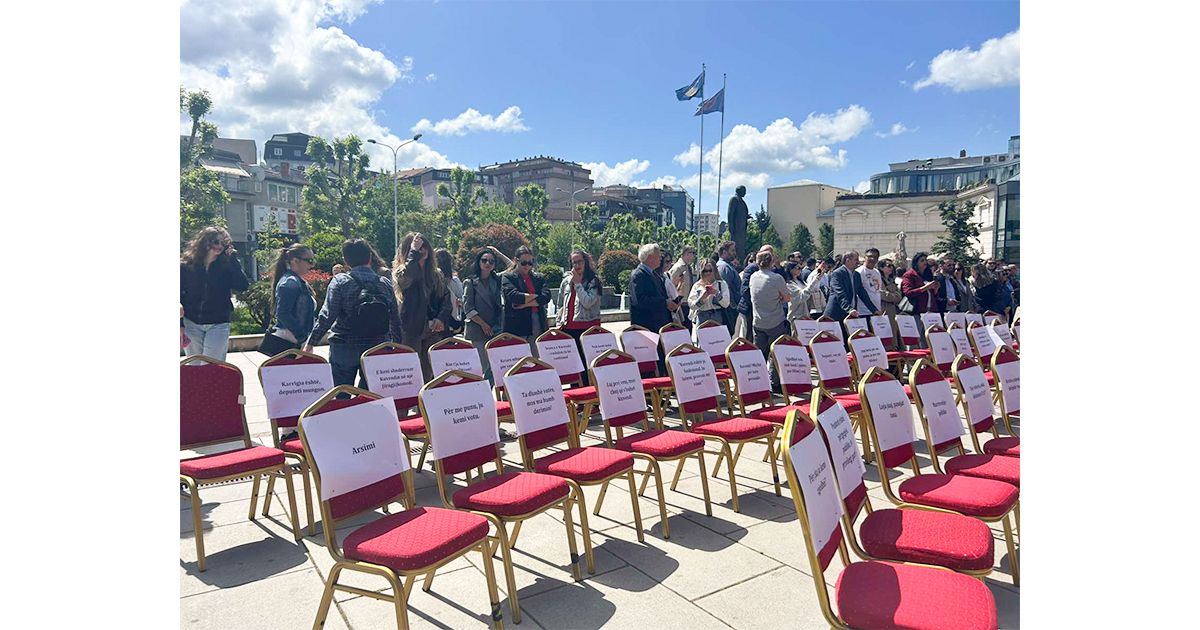The European Union (EU) Office in Kosovo has started the process of putting in place its plan for implementing the new EU Gender Action Plan (EU GAP) for 2016-2020. The Kosovo Women’s Network (KWN) is providing technical support in this process as part of its service contract with the EU Office in Kosovo, including in the identification of objectives and indicators based on gender analysis and in consultation with stakeholders.
On 21 Sep. 2015, the European Commission (EC) and European External Action Service (EEAS) adopted the new GAP, entitled “Gender Equality and Women’s Empowerment: Transforming the Lives of Girls and Women through EU External Relations 2016-2020.” Then, on 26 Oct. 2015, the EC endorsed it. The GAP attempts to ensure gender equality in all the EU’s external activities and relations. For the first time, the GAP applies to all EU missions in all world regions, as well as all EU policies, including development, neighborhood, trade, humanitarian aid, etc. In its endorsement conclusions, the EC emphasized that it is mandatory for all EU missions worldwide to report annually on results achieved related to objectives towards shifting institutional culture and at least one objective per each thematic area. This differs from the 2010-2015 GAP for which reporting was voluntary.
Other differences from the prior 2010-2015 GAP is that this new GAP focuses on three different thematic areas, instead of using a “one size fits all” approach. The thematic areas include: physical and psychological integrity; economic and social rights; and voice and participation. In addition to the thematic priorities, institutional cultural change is a horizontal, mandatory priority that addresses leadership, systematic reporting, being results-focused, coherence and coordination.
Now, EU delegations, including in Kosovo, must select indicators and identify targets for 2016 through 2020 based on local priorities and capacities. Indicators also should align with the UN Sustainable Development Goals (SDGs) and Results Framework.
In relation to the thematic priorities, KWN carried out a gender analysis in Kosovo, drawing also from existing data sources and KWN’s long experience working towards gender equality in Kosovo. KWN used this information to draft a policy paper for the EU with recommendations regarding which of the potential objectives put forth by Brussels could be considered for implementation by the EU mission sin Kosovo. This policy paper and the potential objectives were presented during a consultation with key stakeholders and gender experts in Kosovo on 27 June. This consultation and their input contributed to selecting the final objectives for implementation in Kosovo:
- Girls and women free from all forms of violence against them (VAWG) both in the public and in the private sphere.
- Equal access for girls and women to all levels of quality education and vocational education and training (VET) free from discrimination
- Equal access by women to financial services, productive resources including land, trade and entrepreneurship.
- Equal rights and ability for women to participate in policy and governance processes at all levels.
- Women’s organizations and other CSOs and Human Rights Defenders working for gender equality and women’s and girls’ empowerment and rights freely able to work and protected by law.
These objectives were identified based on the criteria that they should be relevant for the current political, economic, and social circumstances in Kosovo, based on existing gender analyses; and there should be sufficient baseline data to be able to monitor and evaluate progress. The objectives under institutional changes, which are mandatory and must be implemented in Kosovo as well, include:
- Increased coherence and coordination amongst EU institutions and with Member States.
- Dedicated leadership on gender equality and girls’ and women’s empowerment established in the EU institutions and Members States.
- Sufficient resources allocated by EU institutions and Member States to deliver on EU gender policy commitments.
- Robust gender evidence used to inform all EU external spending, programming and policy making.
- Results for women and girls measured and resources allocated to systematically track progress.
- Partnerships fostered between the EU and stakeholders to build national capacity for gender equality.
Now, the EU Office in Kosovo, supported by KWN, working to establish specific indicators, targets, and activities for achieving these objectives via current and future programming. Another consultation will be held with all stakeholders in early September, in order to finalize the plan by mid-September, while annual reporting on its implementation will begin this year.


